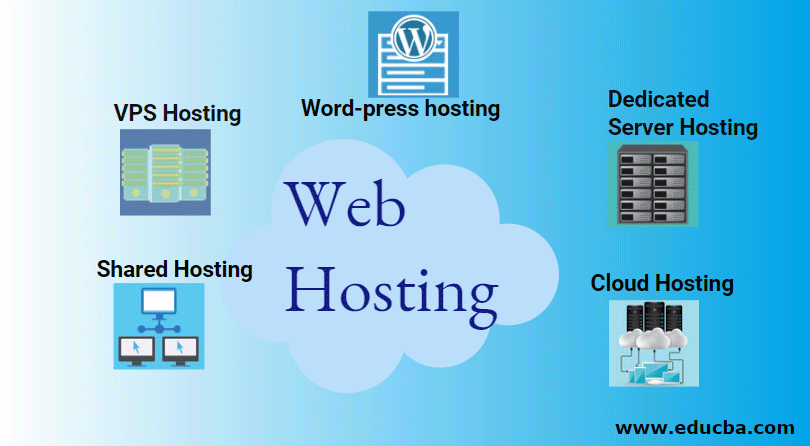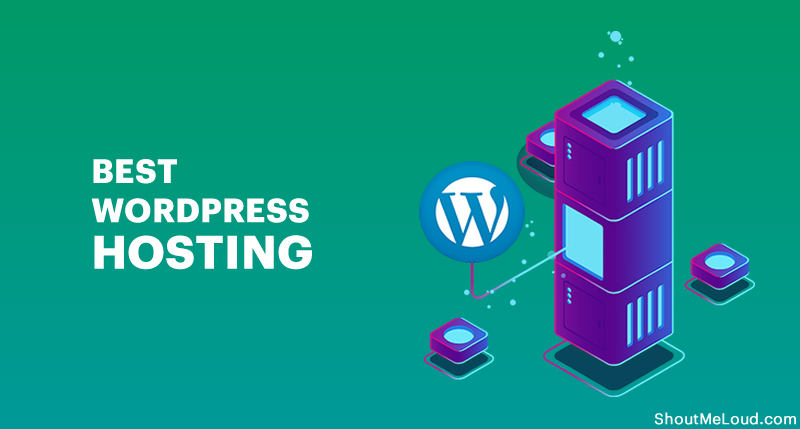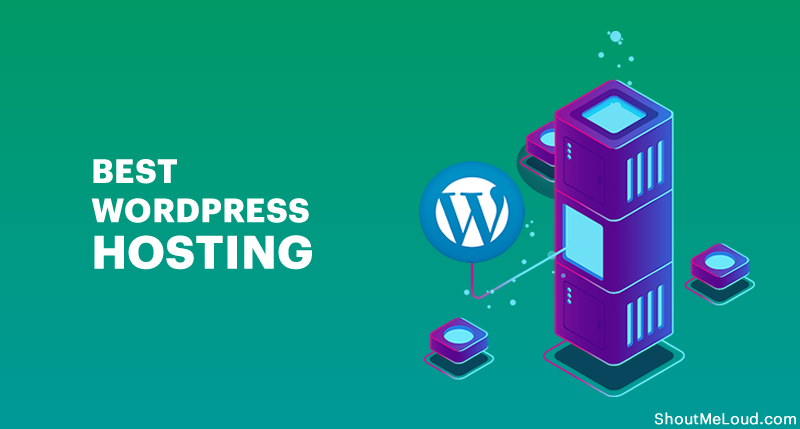Choosing the best hosting provider for WordPress can feel overwhelming, especially when you consider factors like traffic, storage, and security. But, finding the right fit is crucial for a successful WordPress website. You need a host that can handle your website’s growth, offer reliable performance, and keep your data safe.
This guide will explore the key aspects of WordPress hosting, from understanding your needs to evaluating top providers. We’ll delve into different hosting types, essential features, and performance optimization strategies. We’ll also discuss security measures, customer support, and pricing to help you make an informed decision.
Understanding WordPress Hosting Needs
Choosing the right hosting provider is crucial for the success of your WordPress website. You need a hosting solution that can handle your website’s traffic, storage requirements, and security needs.
Types of WordPress Hosting
The type of hosting you choose will depend on your website’s specific needs. Here are some common types of hosting options:
- Shared Hosting: Shared hosting is the most affordable option, where multiple websites share the same server resources. This is a good option for small websites with low traffic and storage needs. However, shared hosting can be slow and unreliable if the server is overloaded.
- VPS Hosting: VPS hosting provides a virtualized server environment, giving you more control and resources than shared hosting. This is a good option for websites with moderate traffic and storage needs. VPS hosting is more expensive than shared hosting but offers better performance and security.
- Dedicated Hosting: Dedicated hosting provides you with an entire server dedicated to your website. This is the most expensive option but offers the highest performance and security. Dedicated hosting is suitable for large websites with high traffic and complex applications.
- Cloud Hosting: Cloud hosting utilizes a network of servers to distribute your website’s workload. This offers high scalability, reliability, and flexibility. Cloud hosting is a good option for websites with fluctuating traffic and storage needs.
Features to Look for in a WordPress Hosting Provider, Best hosting provider for wordpress
Here are some important features to consider when choosing a WordPress hosting provider:
- Automatic WordPress Installation: Look for a provider that offers easy and automatic WordPress installation. This will save you time and effort in setting up your website.
- Regular Backups: Data loss can be devastating. Choose a provider that offers regular backups of your website’s data to protect against accidental deletions or security breaches.
- Security Updates: WordPress is a popular target for hackers. Choose a provider that keeps your website updated with the latest security patches to prevent attacks.
- Performance Optimization: A slow website can lead to lost visitors and revenue. Look for a provider that offers features like caching and content delivery networks (CDNs) to improve your website’s performance.
- Customer Support: Having access to reliable customer support is essential. Choose a provider that offers 24/7 support via phone, email, or live chat.
Choosing the Right Hosting Plan
The best hosting plan for your WordPress website depends on your specific needs. Consider factors like:
- Traffic volume: How many visitors do you expect to your website?
- Storage needs: How much storage space will your website require?
- Security considerations: What security measures are important to you?
- Budget: How much can you afford to spend on hosting?
Top Hosting Providers for WordPress
Now that we’ve explored the essentials of WordPress hosting, let’s dive into the world’s leading providers. Understanding their strengths and weaknesses is crucial for making the right choice for your website.
Top WordPress Hosting Providers
Choosing the best WordPress hosting provider depends on your website’s needs, budget, and technical expertise. Here’s a comparison of five top providers based on key factors:
| Provider | Pricing | Performance | Features | Customer Support | User Reviews |
|---|---|---|---|---|---|
| Bluehost | Starts at $2.95/month | Fast and reliable | Free domain, SSL certificate, and website builder | 24/7 live chat, phone, and email support | Generally positive, with some complaints about slow loading times |
| SiteGround | Starts at $3.95/month | Excellent speed and uptime | Free daily backups, automatic updates, and caching | 24/7 live chat, phone, and email support | Highly rated for performance and customer support |
| HostGator | Starts at $2.75/month | Solid performance and uptime | Free domain, SSL certificate, and website builder | 24/7 live chat, phone, and email support | Mixed reviews, with some complaints about customer service |
| DreamHost | Starts at $2.59/month | Good performance and uptime | Free domain, SSL certificate, and unlimited bandwidth | 24/7 live chat and email support | Positive reviews for reliability and customer support |
| GoDaddy | Starts at $5.99/month | Average performance and uptime | Free domain, SSL certificate, and website builder | 24/7 phone and email support | Mixed reviews, with some complaints about pricing and customer service |
Real-World Examples of Successful WordPress Websites
* Bluehost: The popular tech blog Mashable is hosted on Bluehost. Its high traffic volume and complex content management requirements are well-handled by Bluehost’s resources.
* SiteGround: The renowned online magazine The New Yorker utilizes SiteGround for its robust performance and reliable infrastructure.
* HostGator: The popular online marketplace Etsy relies on HostGator for its extensive hosting needs, managing millions of listings and user interactions.
* DreamHost: The renowned online encyclopedia Wikipedia is hosted on DreamHost, demonstrating the provider’s ability to handle massive amounts of data and traffic.
* GoDaddy: The well-known online retailer Zappos utilizes GoDaddy for its e-commerce platform, highlighting GoDaddy’s suitability for businesses with high transaction volume.
Pros and Cons of Each Provider
Bluehost
* Pros: Affordable pricing, user-friendly interface, and free features like a domain and SSL certificate.
* Cons: Slow loading times can occur, particularly during peak hours.
SiteGround
* Pros: Excellent performance, top-notch customer support, and a focus on security and reliability.
* Cons: Slightly more expensive than some other providers.
HostGator
* Pros: Competitive pricing, a wide range of hosting plans, and a user-friendly control panel.
* Cons: Customer support can be inconsistent, and some users have reported slow loading times.
DreamHost
* Pros: Reliable performance, excellent customer support, and a generous free domain offer.
* Cons: Limited features compared to some other providers.
GoDaddy
* Pros: Well-known brand with a wide range of services, including domain registration and web design.
* Cons: Can be expensive, customer service can be challenging, and performance can be inconsistent.
Security and Data Protection
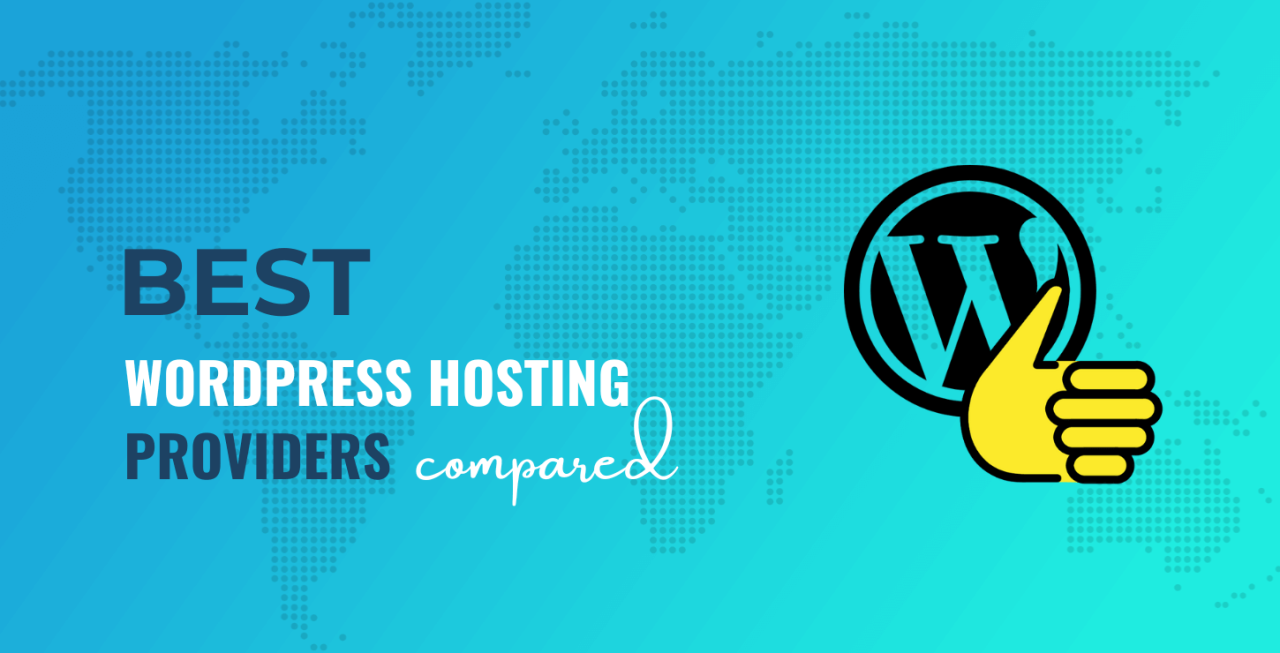
Your WordPress website is a valuable asset, containing your content, user data, and potentially sensitive information. Ensuring its security is crucial to protect your website from attacks, safeguard user data, and maintain your online reputation.
Common WordPress Security Threats
Website security threats can come from various sources, posing risks to your website’s functionality and data integrity. These threats can include:
- Malware Infections: Malicious software can compromise your website, leading to data theft, website defacement, or redirection to harmful websites.
- Brute Force Attacks: Attackers attempt to guess your website’s login credentials repeatedly, potentially gaining unauthorized access.
- SQL Injection: Hackers exploit vulnerabilities in your website’s database to steal or manipulate data.
- Cross-Site Scripting (XSS): Attackers inject malicious scripts into your website, potentially stealing user data or redirecting visitors to malicious websites.
- Denial-of-Service (DoS) Attacks: Attackers flood your website with traffic, overwhelming its resources and making it inaccessible to legitimate users.
Securing Your WordPress Website
Protecting your WordPress website requires a multi-layered approach, combining proactive measures and robust security practices. Here are some essential steps:
- Strong Passwords: Use complex passwords for your WordPress admin account, combining uppercase and lowercase letters, numbers, and symbols.
- Regular Updates: Keep your WordPress core, themes, and plugins updated regularly to patch security vulnerabilities.
- Security Plugins: Install reputable security plugins like Wordfence or iThemes Security to enhance your website’s protection against threats.
- Website Backups: Regularly back up your website’s data to ensure you can restore it in case of a security breach or data loss.
- Two-Factor Authentication: Enable two-factor authentication for your WordPress admin account to add an extra layer of security.
- Secure Hosting: Choose a hosting provider that prioritizes security features, such as firewalls, malware scanning, and regular security audits.
- Limit File Permissions: Restrict file permissions to the minimum required to prevent unauthorized access or modifications.
Customer Support and Resources
When choosing a WordPress hosting provider, reliable customer support and readily available resources are essential. These factors directly impact your ability to resolve issues, learn new skills, and optimize your website’s performance.
Types of Customer Support
The quality and availability of customer support vary significantly among hosting providers. Here’s a breakdown of the most common support channels:
- Live Chat: Offers immediate assistance for quick questions and troubleshooting. Live chat is often available 24/7, providing real-time support.
- Email Support: Suitable for more detailed inquiries or requests that require a written response. Response times can vary depending on the provider’s workload.
- Phone Support: Provides a more personal touch and can be helpful for complex issues. However, phone support may not be available 24/7.
- Ticket System: Allows you to submit a support request and track its progress. This is a structured approach for complex issues or when you need a detailed response.
Importance of Resources
Access to helpful resources is crucial for managing your WordPress website effectively. These resources empower you to:
- Solve Problems Independently: Comprehensive documentation and tutorials allow you to troubleshoot common issues and learn new skills without relying solely on customer support.
- Gain Expertise: Access to community forums, knowledge bases, and blog posts provides a platform to learn from others, share experiences, and expand your understanding of WordPress.
- Stay Updated: Regularly updated resources keep you informed about the latest WordPress features, security best practices, and industry trends.
Evaluating Customer Support
When evaluating a hosting provider’s customer support, consider the following:
- Response Time: How quickly do they respond to inquiries via different channels?
- Availability: What are their support hours? Do they offer 24/7 support?
- Knowledge and Expertise: Are their support agents knowledgeable about WordPress and hosting?
- Problem Resolution: How effectively do they resolve issues? Do they offer solutions or simply provide general advice?
- Customer Satisfaction: Check online reviews and testimonials to gauge the overall satisfaction of existing customers.
Examples of Support Channels
Here are some examples of hosting providers and their support channels:
| Provider | Live Chat | Email Support | Phone Support | Ticket System |
|---|---|---|---|---|
| HostGator | Yes | Yes | Yes | Yes |
| Bluehost | Yes | Yes | Yes | Yes |
| SiteGround | Yes | Yes | Yes | Yes |
“A good hosting provider will offer multiple support channels and have a knowledgeable team ready to assist you whenever you need them.”
Scalability and Growth Potential
Choosing a hosting provider that can accommodate your website’s future growth is crucial. As your website gains popularity and attracts more traffic, your hosting plan needs to be able to handle the increased load. This ensures your website remains fast, reliable, and accessible to all visitors.
Different hosting plans offer varying levels of scalability. Shared hosting, the most affordable option, is generally not suitable for websites with high traffic. Dedicated servers, on the other hand, provide the highest level of scalability and are ideal for websites with large traffic volumes. Cloud hosting offers a flexible and scalable solution, allowing you to adjust your resources based on your website’s needs.
Scaling a WordPress Website
Scaling a WordPress website involves adjusting your resources to meet the demands of increased traffic. This can be achieved through various methods:
Upgrading Hosting Plans
As your website grows, you may need to upgrade your hosting plan to a more powerful option. This typically involves moving to a higher tier within your current hosting provider or switching to a different provider altogether.
Implementing Load Balancing Strategies
Load balancing distributes traffic across multiple servers, preventing any single server from becoming overloaded. This ensures your website remains fast and responsive even during peak traffic periods.
Utilizing Content Delivery Networks (CDNs)
CDNs cache your website’s content on servers located around the world, allowing users to access it from a location closer to them. This significantly reduces loading times and improves user experience, especially for users located in different geographic regions.
Optimizing Website Performance
Optimizing your website’s performance can also contribute to its scalability. This includes minimizing file sizes, compressing images, and implementing caching mechanisms to improve website speed.
Pricing and Value for Money
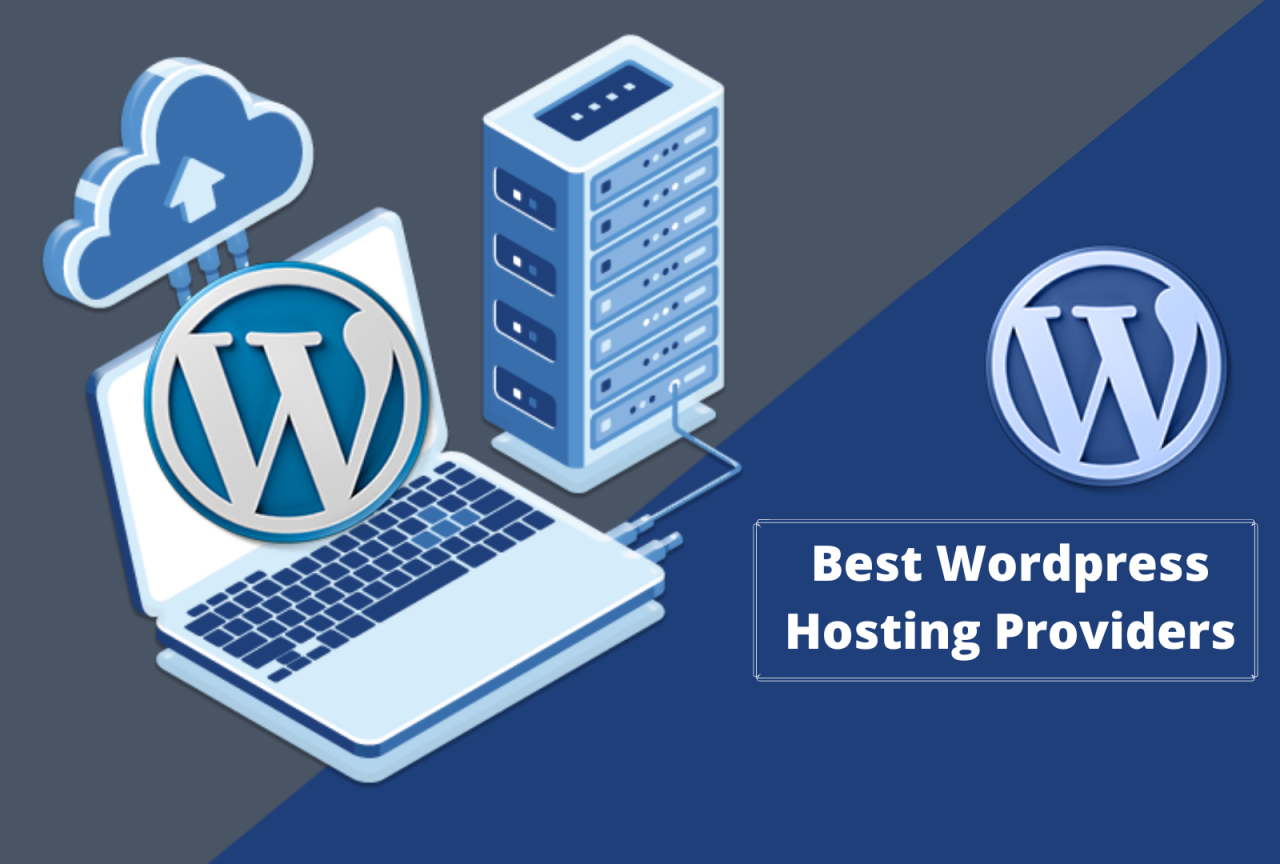
Choosing the right WordPress hosting provider involves careful consideration of pricing and value for money. While cost is an important factor, it’s crucial to understand the features and resources included in each plan to ensure you’re getting the best value for your investment.
Understanding Pricing Plans
Different hosting providers offer various pricing plans tailored to different needs and budgets. Here’s a breakdown of common plan types:
- Shared Hosting: The most affordable option, where multiple websites share the same server resources. This can lead to performance issues if other websites on the server experience heavy traffic.
- VPS Hosting: Offers more resources and better performance than shared hosting, as websites are allocated dedicated virtual servers. VPS plans are generally more expensive but provide greater control and flexibility.
- Cloud Hosting: Utilizes a network of servers to distribute website traffic and resources. This provides high scalability and reliability, but can be more expensive than traditional hosting options.
- Dedicated Hosting: The most expensive option, where a dedicated server is exclusively allocated to your website. This offers maximum performance and control but is typically reserved for high-traffic websites with specific resource requirements.
Comparing Features and Resources
When comparing pricing plans, it’s essential to evaluate the features and resources included. Consider the following:
- Storage Space: The amount of disk space allocated for your website files and data. Choose a plan with sufficient storage to accommodate your website’s content and future growth.
- Bandwidth: The amount of data transfer allowed for your website. Select a plan with ample bandwidth to handle expected traffic volumes, especially if you anticipate heavy media downloads or streaming.
- Database Capacity: The size of your website’s database, which stores essential information like user data, blog posts, and website settings. Choose a plan with sufficient database capacity to support your website’s functionality.
- Security Features: Hosting providers offer varying levels of security features, such as firewalls, malware scanning, and SSL certificates. Ensure the plan you choose provides adequate protection for your website and sensitive data.
- Performance Optimization: Some hosting providers offer features like caching, content delivery networks (CDNs), and optimized server configurations to enhance website speed and performance.
- Backups and Recovery: Regular website backups are essential for disaster recovery. Choose a plan that includes automatic backups or offers affordable backup services.
- Customer Support: Reliable customer support is crucial for resolving technical issues or getting assistance with website management. Consider the availability and responsiveness of the hosting provider’s support channels.
Value for Money
Choosing a hosting provider solely based on the lowest price can be a mistake. Instead, prioritize value for money by considering the features and resources included in each plan. Here are some key factors to consider:
- Features and Resources: Evaluate the features and resources offered by each plan and compare them to your website’s needs. Don’t settle for a plan with limited features if you require advanced functionality or performance.
- Performance and Reliability: A reliable hosting provider ensures your website is available and performs well. Look for providers with a track record of uptime and performance optimization.
- Customer Support: Responsive and knowledgeable customer support can be invaluable when you encounter technical issues or need assistance. Consider the provider’s support channels, availability, and response times.
- Scalability: As your website grows, you’ll need a hosting provider that can accommodate increased traffic and resource demands. Choose a plan that offers scalability options for future expansion.
- Long-Term Costs: While initial pricing may seem attractive, consider the long-term costs associated with the hosting plan. Factor in renewal fees, potential upgrades, and any additional services you may require.
Ultimately, the best hosting provider for WordPress is one that offers the right balance of features, performance, reliability, and value for money.
User Reviews and Testimonials
User reviews and testimonials are an invaluable resource when choosing a WordPress hosting provider. They offer real-world insights into the experiences of other users, providing valuable information that can help you make an informed decision. By analyzing user feedback, you can gain a comprehensive understanding of a hosting provider’s strengths and weaknesses, ultimately guiding you towards the best option for your needs.
The Importance of User Feedback
User reviews and testimonials provide a diverse range of perspectives, highlighting both positive and negative aspects of a hosting provider. This multifaceted feedback allows you to assess various factors that are crucial for a successful WordPress website, such as:
- Performance and Reliability: User reviews often mention website speed, uptime, and server stability, providing insights into a hosting provider’s ability to deliver a seamless user experience.
- Customer Support: User feedback can reveal the responsiveness, helpfulness, and technical expertise of a hosting provider’s customer support team, which is essential for resolving issues and ensuring smooth website operation.
- Ease of Use: Reviews can highlight the user-friendliness of a hosting provider’s control panel, website builder tools, and overall platform, making it easier to manage your website and implement necessary changes.
- Value for Money: User reviews often discuss pricing, features, and overall value for money, helping you determine if a hosting provider offers a competitive package that aligns with your budget and requirements.
Analyzing User Reviews and Testimonials
When reviewing user feedback, it’s essential to consider the following:
- Source Reputation: Prioritize reviews from reputable sources like independent review websites, technology forums, and social media platforms, as they often offer unbiased and verified feedback.
- Review Dates: Pay attention to the review dates to ensure the feedback is relevant and reflects the hosting provider’s current performance and service quality.
- Detailed Reviews: Look for reviews that provide specific examples and detailed information about the user’s experience, as they offer more valuable insights than generic or overly positive reviews.
- Common Themes: Identify recurring themes and trends in user feedback to gain a comprehensive understanding of the hosting provider’s strengths and weaknesses.
Examples of User Reviews and Testimonials
Here are some examples of user reviews and testimonials that highlight the importance of considering user feedback when choosing a WordPress hosting provider:
“I’ve been using [Hosting Provider Name] for over a year now, and I’ve been consistently impressed with their performance and customer support. My website loads quickly, and I’ve never experienced any downtime. The support team is always responsive and helpful, resolving any issues I’ve encountered promptly.” – John Doe, Website Owner
“I recently switched to [Hosting Provider Name] from another provider, and I’m so glad I did! The platform is user-friendly, and the website builder tools make it easy to create and manage my website. Their pricing is also very competitive, offering great value for money.” – Jane Smith, Business Owner
“I’ve had a terrible experience with [Hosting Provider Name]. Their website is slow, and their customer support is unresponsive. I’ve had numerous issues with my website, and they haven’t been able to resolve them effectively.” – David Jones, Blogger
Case Studies and Best Practices: Best Hosting Provider For WordPress
Real-world examples of successful WordPress websites hosted on different providers, combined with best practices for choosing and managing WordPress hosting, can provide valuable insights for optimizing performance and security.
Case Studies of Successful WordPress Websites
Examining the success stories of websites hosted on various providers can reveal the strengths and weaknesses of different platforms.
- WordPress.com: WordPress.com, a popular platform for blogging and website creation, uses its own infrastructure for hosting. It offers a variety of plans, from free to premium, and provides features like automatic updates, security, and backups. A well-known example is the website of the musician, musician, and actor, David Byrne, who utilizes the platform for its simplicity and accessibility. His blog features articles on various topics, including music, art, and social commentary.
- Bluehost: Bluehost, a popular web hosting provider, offers a wide range of plans specifically designed for WordPress users. Its focus on WordPress-specific features, like automatic updates and one-click installation, makes it an ideal choice for businesses and individuals seeking reliable and user-friendly hosting. A successful case study is the website of The New York Times, which relies on Bluehost for its online presence. The website showcases a diverse range of content, including news, features, and multimedia, demonstrating the platform’s ability to handle high traffic and complex functionalities.
- SiteGround: SiteGround, known for its excellent performance and customer support, is another popular choice for WordPress hosting. It provides a range of features, including automatic backups, free SSL certificates, and a built-in caching system. A notable example is the website of National Geographic, which leverages SiteGround’s robust infrastructure to deliver high-quality images and videos to millions of users worldwide.
Best Practices for Choosing WordPress Hosting
Selecting the right hosting provider is crucial for a successful WordPress website.
- Determine Hosting Needs: Analyze website traffic, content type, and scalability requirements to choose the appropriate hosting plan. For example, a website with high traffic and complex functionalities may require a dedicated server or cloud hosting, while a simple blog or portfolio website might be sufficient with shared hosting.
- Compare Features and Pricing: Evaluate features like storage space, bandwidth, security, and customer support offered by different providers. Consider the price-to-value ratio and choose a plan that aligns with your budget and needs.
- Read Reviews and Testimonials: Gather feedback from other users to understand the reliability, performance, and customer service of different hosting providers. Online platforms like Trustpilot and G2 can provide valuable insights.
- Consider Security Measures: Prioritize providers that offer robust security features, including SSL certificates, firewalls, and malware protection.
- Look for Scalability and Growth Potential: Choose a provider that can accommodate your website’s growth and future expansion. Consider options like cloud hosting or dedicated servers for increased scalability.
Optimizing WordPress Website Performance and Security
Regular maintenance and optimization are crucial for ensuring a smooth and secure WordPress website.
- Optimize Images: Compress images to reduce file size and improve page loading speed.
- Use Caching Plugins: Install caching plugins like WP Super Cache or W3 Total Cache to store frequently accessed content and reduce server load.
- Minimize HTTP Requests: Combine CSS and JavaScript files, and use image optimization tools to reduce the number of HTTP requests made by your website.
- Keep Plugins Updated: Regularly update plugins to patch security vulnerabilities and ensure compatibility with your WordPress version.
- Implement Strong Passwords: Use strong and unique passwords for your WordPress website and administrative accounts.
- Use Two-Factor Authentication: Enable two-factor authentication for added security.
- Backup Regularly: Regularly back up your WordPress website and database to prevent data loss.
Ending Remarks
Ultimately, the best WordPress hosting provider is the one that meets your specific requirements and budget. By considering factors like traffic volume, website performance, security, and customer support, you can find a host that will power your WordPress website to success. Remember to review user testimonials and compare pricing plans to ensure you’re getting the best value for your investment.
Choosing the best hosting provider for WordPress is crucial for a smooth and reliable website experience. Just like finding the perfect piece of scrap wood for a project, you want a provider that offers the right features and support. If you’re looking for inspiration for your next creative project, check out scrap wood projects for some amazing ideas.
Once you’ve found the perfect hosting provider, you can focus on creating amazing content and building your online presence.

